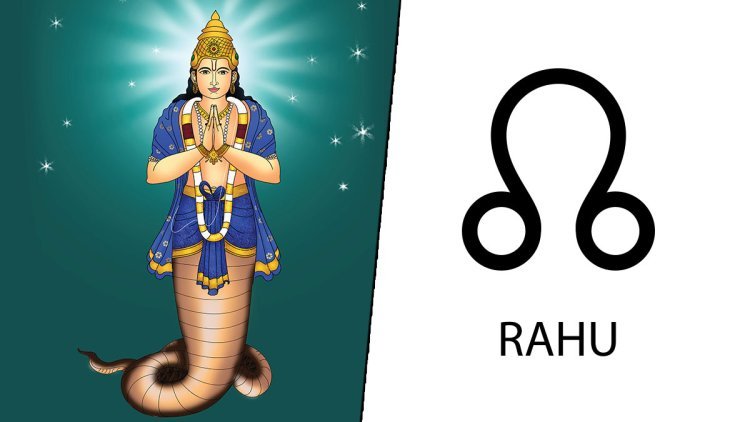Rahu Kaal Today: Ancient Wisdom for Modern Times

In the bustling chaos of modern life, the search for structure and balance often leads us to revisit ancient wisdom. One such timeless concept that has continued to influence daily activities in Indian culture is "Rahu Kaal." This period, traditionally deemed inauspicious for new beginnings and critical decisions, holds a special place in the daily schedules of many. But what is Rahu Kaal, and why does it still matter today?
Understanding Rahu Kaal
Rahu Kaal, also known as Rahu Kalam, is a segment of approximately 90 minutes occurring each day, believed to be ruled by the shadow planet Rahu. According to Vedic astrology, Rahu is considered a malefic planet, and the period governed by it is thought to bring unfavorable outcomes. This period varies daily and depends on the sunrise and sunset times, as well as the specific day of the week.
The ancient seers devised a method to calculate Rahu Kaal to avoid undertaking any significant tasks during this inauspicious time. The calculation is rooted in the lunar calendar and takes into account the intricate movement of celestial bodies.
The Historical Significance of Rahu Kaal
The origin of Rahu Kaal can be traced back to the myths and legends of Hindu mythology. One such legend is the story of the churning of the ocean (Samudra Manthan), where Rahu, a demon, disguised himself to drink the nectar of immortality. Upon discovering this, Lord Vishnu decapitated Rahu, but having consumed the nectar, Rahu’s head remained immortal. This head is believed to symbolize the shadowy influence that disrupts auspicious activities.
Historically, Rahu Kaal was meticulously observed by scholars and astrologers who advised kings and commoners alike. Major decisions, travel plans, and auspicious ceremonies were carefully scheduled to avoid Rahu Kaal, ensuring the alignment with favorable cosmic influences.
Rahu Kaal in Modern Times
In today’s fast-paced world, the principles of Rahu Kaal continue to resonate with those who seek a balance between tradition and modernity. While not everyone adheres strictly to astrological timings, many still consult Today Panchang (Hindu almanacs) to plan important activities.
Modern technology has further simplified the calculation of Rahu Kaal. Numerous websites, mobile apps, and even daily newspapers provide accurate timings, making it easier for people to incorporate this ancient wisdom into their daily routines.
Practical Applications of Rahu Kaal Today
Business and Financial Decisions: Many business owners and professionals avoid initiating significant financial transactions or signing contracts during Rahu Kaal. They believe that decisions made during this period might lead to unfavorable outcomes or obstacles.
Travel Plans: Whether planning a long journey or a short trip, some people prefer to start their travels outside the Rahu Kaal period. This practice is thought to prevent mishaps and ensure a smooth journey.
Ceremonial Events: Weddings, housewarming ceremonies, and other significant events are often planned by consulting astrological timings. Avoiding Rahu Kaal is seen as a way to ensure that these events are successful and harmonious.
Daily Activities: Even routine tasks such as interviews, meetings, and medical appointments might be scheduled to avoid Rahu Kaal, with the belief that choosing an auspicious time can enhance positive outcomes.
The Psychological Aspect
Beyond the astrological significance, observing Rahu Kaal can also have psychological benefits. It offers a structured approach to planning, providing a sense of control and mindfulness in daily activities. For those who believe in its influence, avoiding Rahu Kaal reduces anxiety and enhances confidence in their endeavors.
Criticisms and Skepticism
While Rahu Kaal is revered by many, it also faces criticism and skepticism, particularly from the scientific community. Critics argue that there is no empirical evidence to support the belief that Rahu Kaal influences outcomes. They view it as a superstition that hinders rational decision-making.
However, proponents of Rahu Kaal often counter that it is a matter of personal belief and cultural heritage. They argue that the tradition of observing Rahu Kaal has been passed down through generations and serves as a connection to their roots and spiritual practices.
Balancing Tradition and Modernity
Incorporating Rahu Kaal into modern life requires a balance between tradition and practicality. For those who find meaning and value in this practice, it is essential to integrate it in a way that complements their lifestyle without causing undue stress or inconvenience.
Awareness and Flexibility: Being aware of Rahu Kaal timings and planning around them can be done without rigid adherence. Flexibility ensures that one can respect traditions while accommodating the demands of modern life.
Personal Significance: Each individual can determine the level of significance Rahu Kaal holds in their life. For some, it might be a critical aspect of their daily routine, while for others, it might serve as a gentle reminder of their cultural heritage.
Mindful Practice: Observing Rahu Kaal can be a form of mindfulness, encouraging individuals to pause and reflect before making significant decisions. This pause can lead to more thoughtful and deliberate actions.
Conclusion
Rahu Kaal, a concept steeped in ancient wisdom, continues to find relevance in the lives of many today. Whether viewed as a superstition or a valuable tradition, it serves as a reminder of the rich cultural heritage that shapes our beliefs and practices. In a world driven by constant change and innovation, Rahu Kaal offers a moment of reflection, urging us to consider the celestial rhythms that have guided humanity for centuries.
By respecting the wisdom of the past and integrating it with the practicalities of the present, we can create a harmonious balance that enriches our lives. Whether you choose to observe Rahu Kaal or simply appreciate its cultural significance, it stands as a testament to the enduring legacy of ancient knowledge in modern times.
What's Your Reaction?










![Blog Submission Sites 2024 [High DA]](https://blognow.co.in/uploads/images/202306/image_100x75_6494a03eaff5e.jpg)
![Article Submission Sites 2023 [High DA & PA]](https://blognow.co.in/uploads/images/202307/image_100x75_64c4181f17036.jpg)
![Classified Submission Sites 2023 [High DA & PR]](https://blognow.co.in/uploads/images/202306/image_100x75_649dcd5260808.jpg)




![Article Submission Sites 2023 [High DA & PA]](https://blognow.co.in/uploads/images/202307/image_750x415_64c4181f08ed5.jpg)
![Classified Submission Sites 2023 [High DA & PR]](https://blognow.co.in/uploads/images/202306/image_750x415_649dcd5247eeb.jpg)
![Blog Submission Sites 2024 [High DA]](https://blognow.co.in/uploads/images/202306/image_750x415_6494a03e96bfa.jpg)